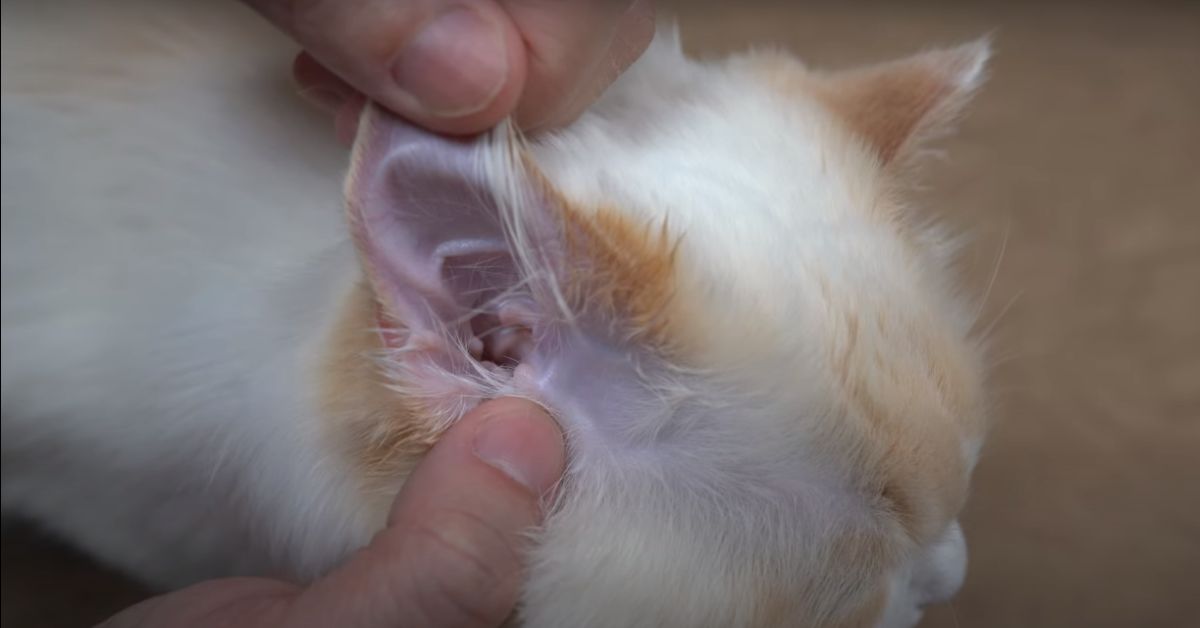Do Persian cats have dirty ears? Yes, Persian cat ear problems can be a matter of concern. Their ears have a small outer ear that easily collects dirt. This can lead to an ear infection which can leave your Persian permanently deaf. By taking proper care of your cat’s ears, you can protect your cat from this risk.
Main Causes of Persian Cat Ear Infection
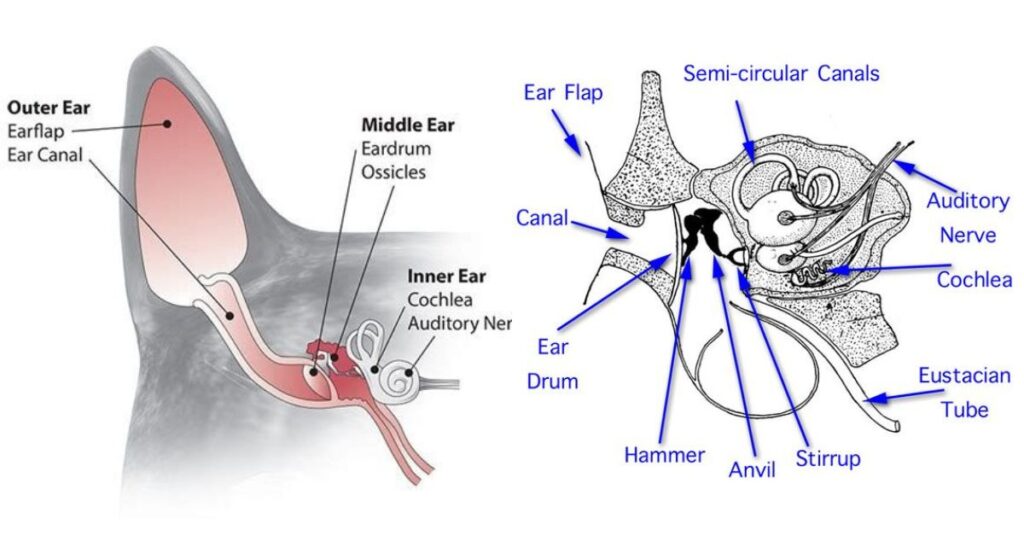
- Diabetes: High levels of diabetes cause cats to have higher sugar levels in their blood and tissues, which makes it easier for bacteria to grow in their ears.
- Particles stuck in the ear: Sometimes particles enter the cat’s ears, like grass grains which get stuck in their ears and cause inflammation.
- Ear mites: Dirt in the ear can give rise to parasites which can lead to dangerous infections.
- Cancerous: A tumor inside the ear can also turn into an infection.
- Poor Immune System: A cat’s immune system needs to be strong to fight viruses such as feline leukemia and feline immunodeficiency virus; otherwise, such a strong virus can put your cat’s life at risk.
- Smaller ear size: Some cats, such as the Himalayan cat and Persian cat, have smaller outer earlobes, which increases the chances of dirt accumulating.
- Excessive Ear Wax: Due to the narrow air canal, more wax gets accumulates in the ears. It is natural to have wax in the ears but excessive amounts can cause blockage.
Signs of a Cat’s Ear Infection
Loss of appetite
Redness in the ears
Frequent itching in the ears
Liquid discharge from the ears
Shaking the head
Odor near the ears
More wax than normal
Pain in the ears
Burning sensation
Treatment of ear infections in Persian cats
Parasites and ear mites are a major cause of Persian cat ear problems. These can be prevented by regularly cleaning your cat’s ears with ear-cleaning drops. Along with this, you should also get your cat’s ears checked by a certified vet every two months so that problems in cats’ ears can be diagnosed and treated promptly.
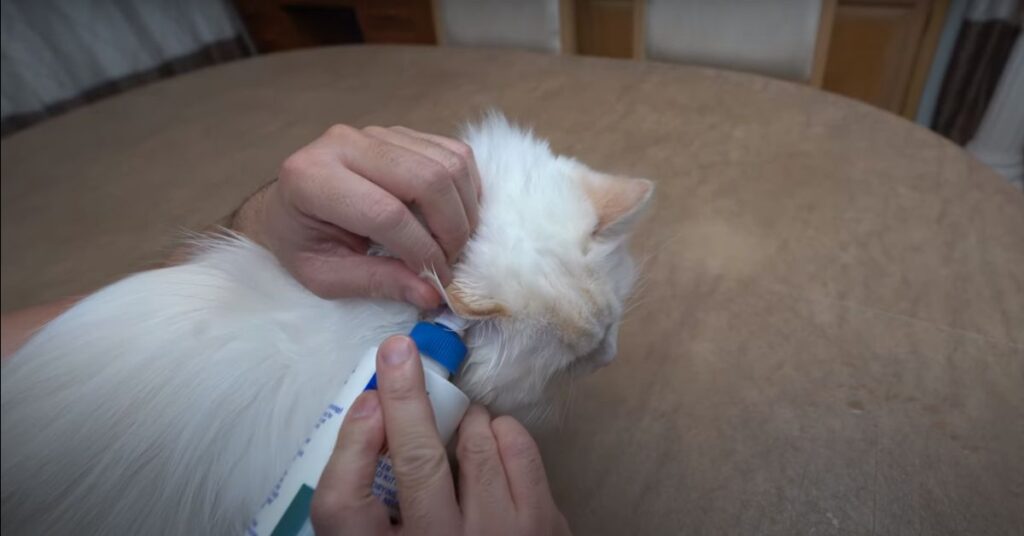
Some important steps to treat ear infection
Monitor for Allergies: Allergies cause inflammation and discomfort in Persian cat’s ears. If you notice your Persian cat scratching his ears frequently, you may need to schedule an ear-cleaning routine. If redness becomes severe, take him to the veterinarian.
Developing a habit: Start cleaning your cat’s ears from an early age so that later on if they get an ear infection, they will not become aggressive or scared when you pick at their ears.
Encourage them: Encourage your cat by petting and giving treats after cleaning or applying medication.
A quiet place: While cleaning or treating their ears, choose a place where there is no noise or startling sounds. Because cats hate loud noises.
Medication: After putting the ear drops prescribed by the veterinarian in the cat’s ear, massage them gently on the root of the ear so that the medicine spreads well.
Cleaning: Ears should be cleaned regularly with a soft cloth, which reduces the chances of infection.
How do you clean Persian cat ears at home?
Persian cats have small outer ears, so dirt accumulates in their ears very quickly. Getting their ears cleaned by professionals every month can be time-consuming and expensive. There are many ways to clean your cat’s ears at home, and I will tell you the easiest and most effective way.
Required items for cleaning ears:
- Earbuds
- Alcohol wipes (Alcohol pads)
- olive oil
Step 1. Clean the cat’s/kitten’s ears thoroughly with an alcohol pad. Alcohol kills parasites and bacteria.
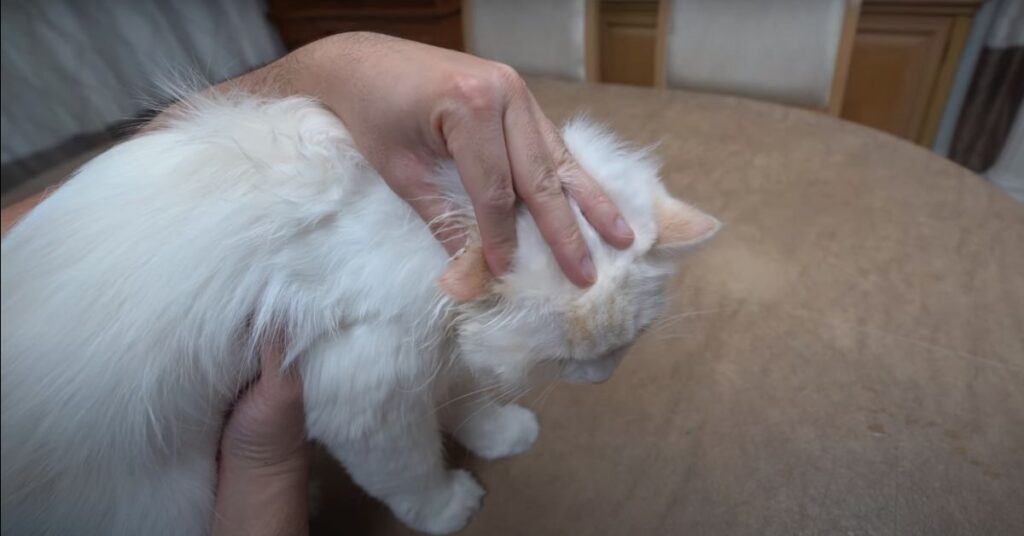
Step 2. Put 2 to 4 drops of olive oil in the cat’s ear and massage the base of the ear gently using your thumb and index finger. Olive oil will not only help in cleaning the ears but will also eliminate ear mites and prevent further problems of mites or parasites.
- If olive oil is not available, you can also use coconut oil
Step 3. Massage for 4 to 5 minutes so that the wax and dirt will soften and come out easily.
Step 4. Clean the cat’s ear canal carefully with the earbuds. You will see that all the dirt will come out of the ears easily. Be careful not to insert the buds too deep into the ears as this can hurt their ears.
- If you don’t have any experience using earbuds, try cleaning your furry friend’s ears with a wet cloth or tissue.
Step 5. Give the cat its favorite treat as a treat.
Persian cat ear problems (mites) treatment: These are microscopic bacteria that live inside the ear. They can be seen in the form of itching and patches on the outer part. In such a case, you should take your cat to the veterinarian and get it examined. On the advice of the veterinarian, you can use a topical solution such as ivermectin which contains pyrethrin insecticide which can kill these bacteria.
Is coconut oil good for cats ears?
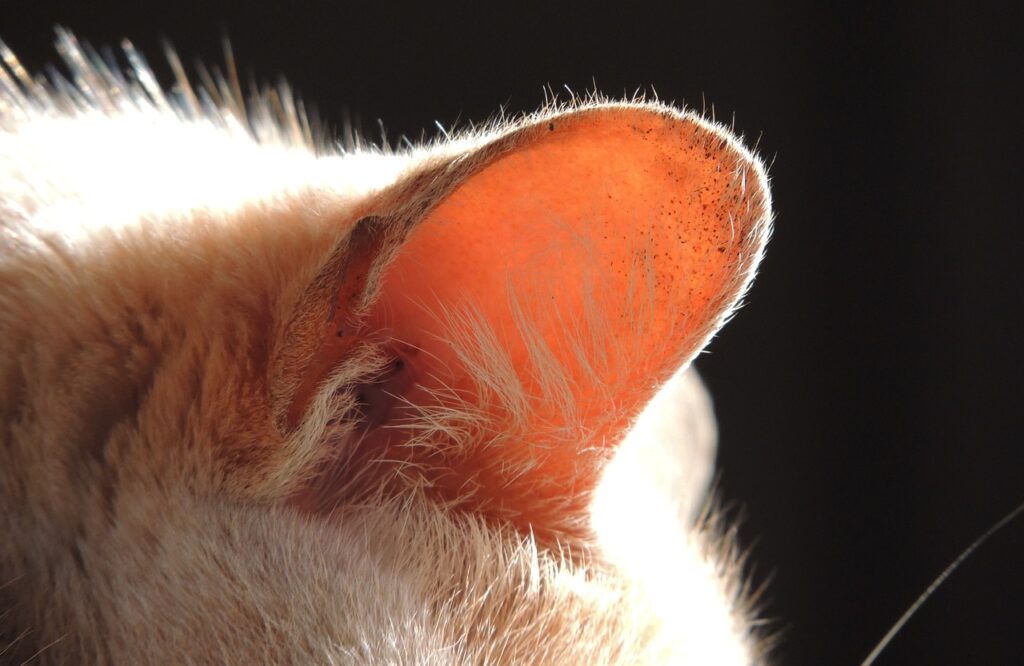
Coconut oil has very good antifungal, antibacterial, and cleaning properties. Putting a few drops of coconut oil in your cat’s ears and cleaning them with ear buds and cotton cloth cleans their ears well. If your cat shakes its head repeatedly or scratches its ears a lot, then by using coconut oil you will see that this problem of your fluffy ball is solved.
If you do not want to use any chemical solution on your cat and you also have a question in your mind how to clean cat ears without solution? Then olive oil or coconut oil would be a better option
Will cats lick coconut oil?
Coconut oil is completely safe for your cat if your cat is not allergic to coconut. Since the oil is not poisonous for cats, if your cat licks coconut oil during air cleaning, it will not cause any harm to it. Some people even give coconut oil to cats in small amounts as a deworming agent. But before doing this, definitely consult your veterinarian.
Do indoor cats need ears cleaned?
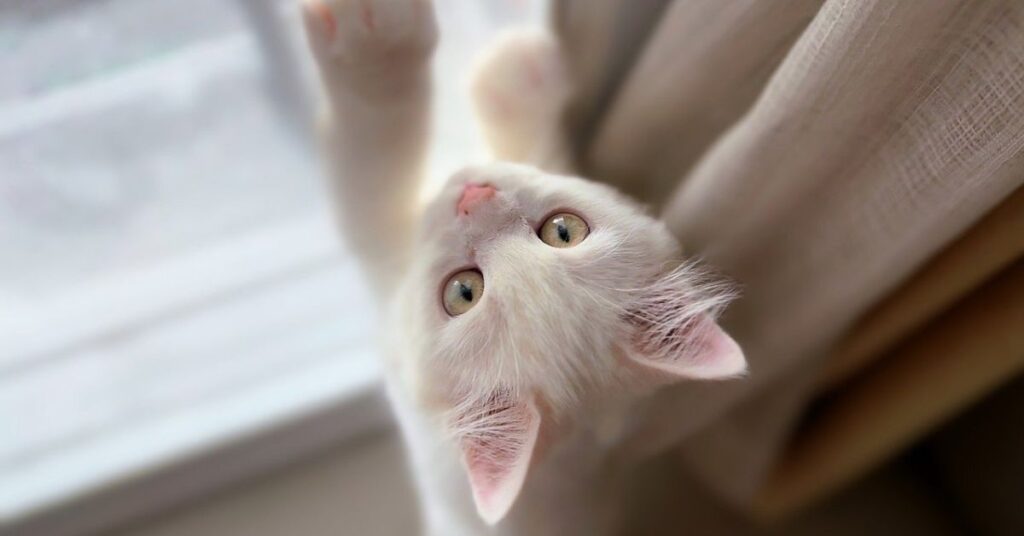
Outdoor cats require more grooming. Due to living in an open environment, their ears are more exposed to dirt. But indoor cats also need ear cleaning equally, especially if they are breeds like Himalayan or Persian. Indoor cats do not get much sunlight, which can increase their chances of getting parasites and ear mites.
Can I flush my cat’s ears with water?
Cleaning a cat’s ears should be done with a liquid that dries quickly and is astringent. Water does not have either of these properties, so it is not a good ear cleaner. Water should not dry out completely in the ear, which can lead to the formation of pus.
Conclusion
Persian cat ear problems are the most common issue which can have many causes. These problems can be avoided by cleaning their ears regularly. If your Persian is constantly scratching his ears, you should be careful. If excessive redness is seen inside the ears, you should quickly take your cat to the veterinarian and follow his instructions.
Also read: Persian Cat Health Issues | Symptoms, Treatments And Prevention Tips

I am Saral Kumar, a passionate blogger who dedicates my time to providing valuable information on pet care, especially cats. I create content that helps cat owners to understand their furry friends better and take care of them. I have spent the last decade trying to understand cats better. So I am sharing my valuable insights and tips with my fellow cat enthusiasts through writing.
